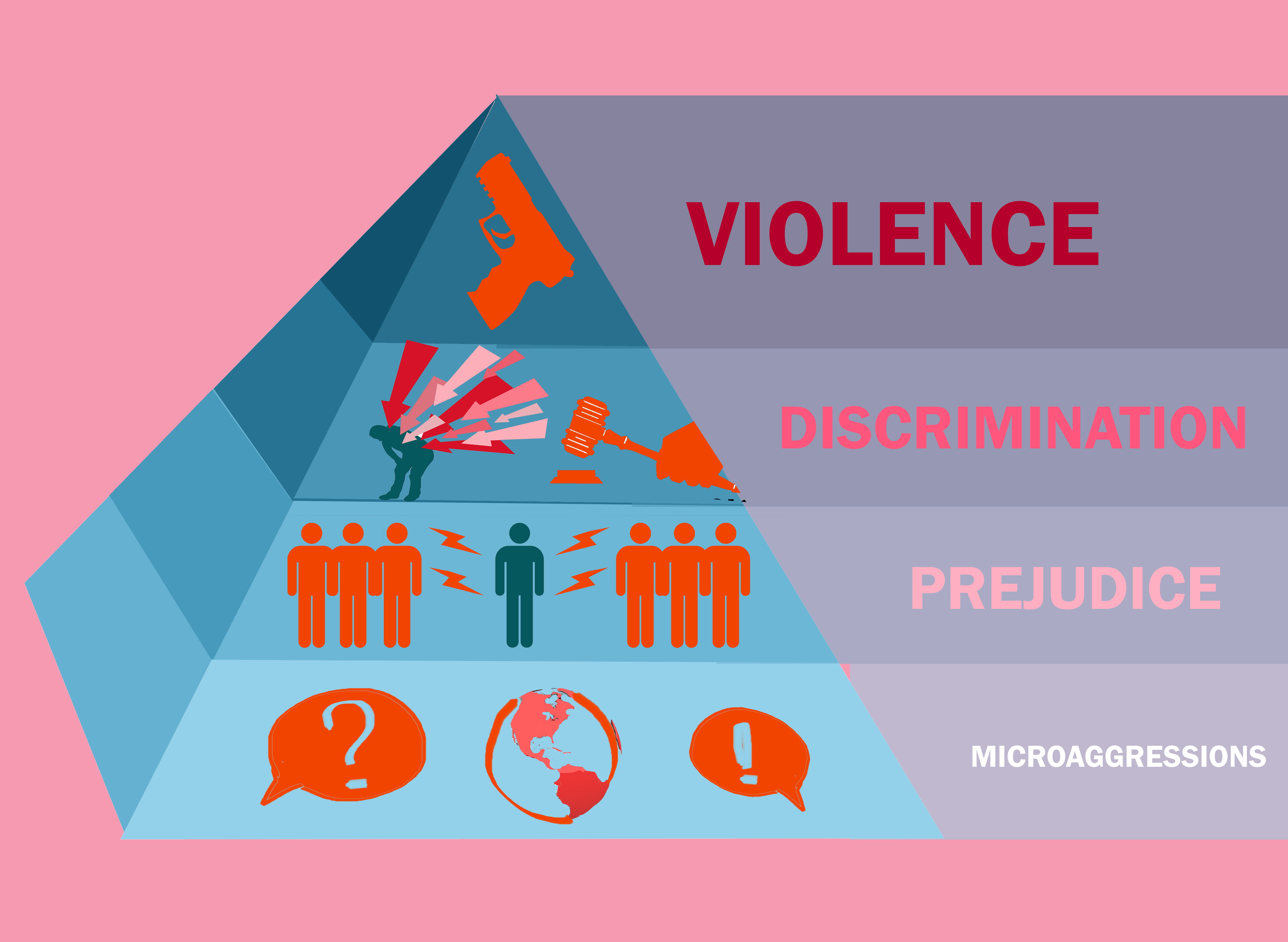Freedom of speech ultimately translates to the notion of responsible speech
Racism operates on a spectrum, and all of it matters. Its more extreme versions do not appear out of nowhere. Quite like Maslow’s hierarchy of needs, racial violence builds itself on top of its smaller forms. Once a part of the pyramid is normalized and accepted by a dominant group, a higher part starts developing. Like racism against any marginalized group, islamophobia is no exception.
In the wake of the shooting at a mosque in Quebec City a little over two weeks ago, many have wondered how our society has come to this. As Quebec Premier Philippe Couillard told reporters following the attack, “We are all responsible,” according to the Montreal Gazette. And it all starts at the bottom of the pyramid: microaggressions.
Yes, a microaggression, despite its unfortunate terminology, does matter. The Merriam-Webster dictionary defines a microaggression as “a comment or action that is subtly and often unintentionally hostile or demeaning to a member of a minority or marginalized group.” This includes comments about belongings, appearance and preferences (among others) that appear in a person’s daily life.
I won’t bother trying to pronounce your name. Where are you really from? Your parents must be so strict. How’s the war in your country? These remarks suggest that there is an image of who “true” Canadians are, grounded in Eurocentric whiteness and Christianity. The microaggressions alienate people and subconsciously start to form an insidious divide that makes the group as an other in contrast to the imaginary us. They quietly hint that some people just don’t belong.
Then comes prejudice: the over-generalizations, the assumptions and the hatred. Asians are taking my job. All Muslims hate Westerners. Black people are violent criminals. All terrorists are Muslim. The aforementioned divide limits daily experiences that could improve understanding between communities. Instead, the more distant interpersonal relationships become, the less empathetic people are. The marginalized group is dehumanized, reduced to the most sensational headline, and summarized as a general threat to that illusory us.
The fear seems justified now. Time for some old-fashioned discrimination. During the 2013 provincial election, Pauline Marois put up Bill 60: The Quebec Charter of Values—a thinly-veiled attempt at banning civil servants from wearing Islamic headscarves, the most common “obvious religious garment.” While Jews wearing kippas and Sikhs wearing turbans would also be forced to remove their religious items, a poll conducted by CBC in 2014 found that 78 per cent of anglophones and 70 per cent of allophones agreed that the legislation would disproportionately target Muslim women.
Hijabs and niqabs were deemed too conspicuous despite the giant beacon-like cross on Mount Royal and the cross hanging in the National Assembly of Quebec that would be allowed to remain. That bill, along with the many debates on limiting religious accommodation, such as Kellie Leitch’s screening for “anti-Canadian values” and an American travel ban from Muslim-majority countries, turns exclusionary thoughts into discriminatory actions.
The government-sanctioned actions indicate to the general population that this type of discrimination is completely okay. Quebec’s growing xenophobia in “defense of francophonie,” and attitudes adopted from France’s similar anti-immigrant and islamophobic stances set the stage for a terroristic mass shooting. It had all the components of normalizing violence to occur. After all, Alexandre Bissonnette, the alleged shooter, was found to be a keen follower of Trump and Le Pen’s nationalistic rhetoric on social media.
In this whole process, there has been an abuse of so-called freedom of speech. If you think about it as “just political correctness” or “limiting freedom of expression,” I hope you also think about your part in inciting race-based violence in direct and inevitable ways. Nothing you say or do happens in a vacuum. Even the smallest actions can contribute to the greatest tragedies. What you say matters every step of the way.
So act like it.
No one wants to make your comments illegal, but everyone can call you out for their inappropriateness and take measures to correct them. Social consequences should befall anyone who causes societal harm. Just as freedom of the press can be abused, so can freedom of speech. After all, they both influence social cohesion and the well-being of others. Freedom of speech means assuming responsibility for your speech.
Please consider your role in the ongoing tensions. You may not have fired the gun, but you helped load the bullets.





Nice illustration to make your sand-castle theory look scientific. The belief that politically-incorrect or “offensive” speech leads to greater crimes is the “broken windows” theory of crackpot academics.
This is so bad I actually had to Google whether this website is satire or not. Then I found out it’s a college newspaper, which is basically splitting the difference.
I think you are trying to use one of many of these tragedies to limit “so-called freedom of speech”, and you are being pretty general about the attitude of westerners. I think there are definitely social and legislative solutions to mass shootings, but alienating people like bill maher who are trying to solve a problem is not going to help. someday, when you’re out of college I hope you will change your views on society
If there is one bright side here, it appears Ms. Yee only writes once a year.
Quite possibly one of the most logically incoherent opinions I’ve ever heard. This is the most slippery of slopes… Better luck with your next effort!
I am also free to choose not to let someone’s words or actions have an effect on me, especially those not connected with me.
While you are not calling for certain comments to be made illegal, you are certainly advocating that certain comments should invite some form of condemnation and retaliation. The problem lies in choosing which comments should incur censure.